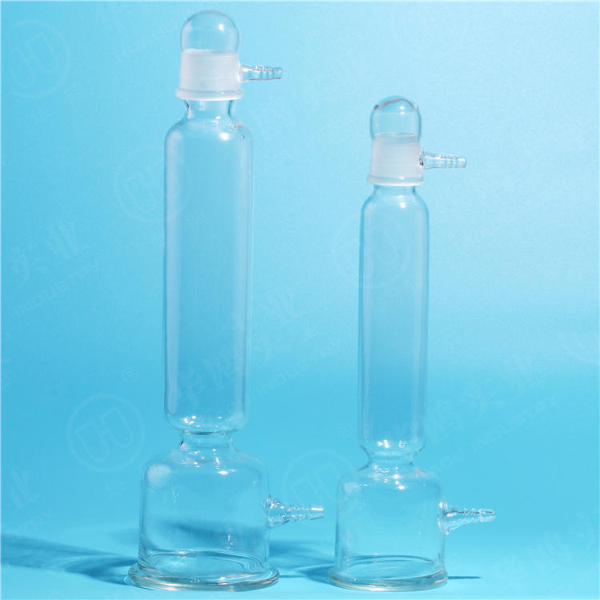Maintenance method of glass reagent bottle
Glassware is very common in the laboratory and is used in a large amount. This article aims to discuss how to clean and maintain glassware. Soda-lime (soda-lime) glass is a softer glass and should not be used in laboratories because this glass does not tolerate changes in temperature and pressure like borosilicate glass, nor should it be autoclaved at high temperatures. Most bottles are made of soda lime glass. When this article discusses borosilicate glass, it should not be confused with the destruction of soda-lime glass during cleaning or autoclaving. Handling of new glassware; new glassware usually has a little alkalinity. After checking the sealing of glassware and whether there are cracks, wash it with warm soapy water, and then soak it in 1% hydrochloric acid or nitric acid solution for a short time. Wash glassware again, then rinse with distilled water. Why do glass instruments break? Laboratory glass breaks during normal use, usually as a result of splinters, abrasion or scratches, or as a result of experiencing rapid temperature or pressure changes with the glass itself. Once you get your laboratory glassware, check it carefully before using it, holding the glassware in natural light to see if there are chips, cracks, cracks, etc. Even very small cracks can cause glass to break under high temperature or pressure.
Bumping glassware against anything (such as other glassware, the edge of a pool, the edge of a table, etc.) to avoid small bursts or cracks in the glassware. Do not soak glassware in strong alkaline solution for a long time to avoid damage to glassware. Cleaning Tips for Cleaning Glass Instruments Laboratory glass instruments should not have chemical and grease residues. According to experimental needs, glass instruments may also need to be disinfected. The following glass reagent bottle manufacturers give you some cleaning tips:
Use a soft bristle brush to avoid unnecessary bursting. Hydrofluoric acid should not be used to clean glassware, and in other applications, hydrofluoric acid is used as a rust remover, metal cleaner, glass etchant, and metal plating compound, which is a highly corrosive compound. Do not use strong acids or alkalis to clean glassware. Standard borosilicate glass can be sterilized by autoclaving. If you want to autoclave and sterilize glass instruments, the exhaust channel of the pressure cooker should be smooth and let it cool down slowly. Generally, autoclave to 230-240 degrees. It can be autoclaved up to 400°C for a short period of time (for very special applications).
Ashing glass in a mechanical furnace at temperatures over 500 degrees for long periods of time will shorten the life of your glassware.
In order to determine that a glass container is fully wettable (particularly important in accurate liquid measurements), verify that distilled water wets all surfaces equally. Wash glassware immediately after removing all residue, or soak it if it cannot be cleaned immediately. Glassware cannot be cleaned with a wire brush.
Always rinse unused glassware with water, followed by soaking in distilled water. Boil in a mild sodium carbonate solution to remove grease from glass, or use acetone to remove, then rinse with water. Ultrasonic cleaning is also a good option for glassware, especially when combined with mild detergent heating. For the drying of glass instruments, drying the instrument at 100 degrees on the stove is a good choice, and drying is also a good method. Steam autoclaving of glass instruments: Autoclave borosilicate glass instruments for 15-20 minutes at 100-120 degrees Celsius. Try to remove sealing rings, clips and buckles during high-temperature sterilization. If it is impossible to remove these things, you should at least loosen or tighten them. Open them to avoid pressure explosions.


Contact number:0515-88701486
Huaou Avenue, Longgang Industrial Park, Yancheng City
